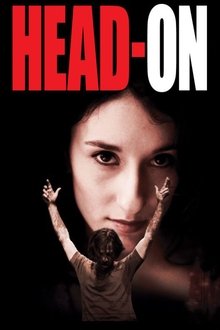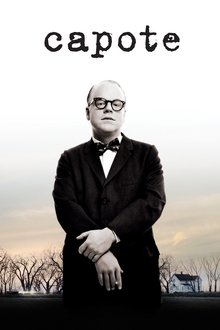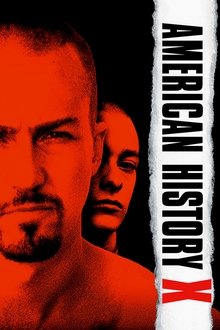The personal stories lived by the Uncle, the Father and the Son, respectively, form a tragic experience that is drawn along a line in time. This line is comparable to a crease in the pages of the family album, but also to a crack in the walls of the paternal house. It resembles the open wound created when drilling into a mountain, but also a scar in the collective imaginary of a society, where the idea of salvation finds its tragic destiny in the political struggle. What is at the end of that line? Will old war songs be enough to circumvent that destiny?
Related Movies

Standout: The Ben Kjar Story (2026)
Standout tells the powerful story of Ben Kjar, born with Crouzon Syndrome, a rare craniofacial disorder. From birth, doctors warn that his life will be overshadowed by limitations. Ben yearns for an ordinary life free from the harsh scrutiny he faces daily. However, each experience of adversity, including relentless bullying and a series of painful surgeries, ignites a fire within him. Wrestling becomes his proving ground, a place where he learns to transform his facial difference into a source of power. Determined to succeed, he pushes himself relentlessly, breaking through physical, social, and even romantic barriers that once seemed insurmountable. But as unexpected challenges arise and ridicule resurfaces, Ben finds himself at a defining crossroads: fade into the background of a “normal” life, or fully embrace his unique path and boldly stand out.

Lili Marleen (1981)
The story of a German singer named Willie, who while working in Switzerland, falls in love with a Jewish composer named Robert, whose family is helping people to flee from the Nazis. Robert’s family is skeptical of Willie, thinking she could be a Nazi as she becomes famous for singing the song “Lili Marleen”.

Casablanca (1943)
In Casablanca, Morocco in December 1941, a cynical American expatriate meets a former lover, with unforeseen complications.

Rome, Open City (1945)
During the Nazi occupation of 1944 Rome, Resistance leader Giorgio Manfredi is pursued by the Nazis as he seeks refuge and a means of escape.

Beyond Silence (1996)
Beyond Silence is about a family and a young girl’s coming of age story. This German film looks into the lives of the deaf and at a story about the love for music. A girl who has always had to translate speech into sign language for her deaf parents yet when her love for playing music grows strong she must decide to continue doing something she cannot share with her parents.

Bollywood/Hollywood (2002)
Rahul Seth is a dashing young millionaire who believes he is "western" enough to rebel against his mother and grandmother. They are not too keen about his Caucasian girlfriend Kimberly who, to make matters worse, is a pop star. Before you can say "karmic intervention," Kimberly dies in a freak accident and Rahul is devastated. Instead of allowing him to mourn in peace, Rahul's mother sees the opportunity she's been waiting for. She threatens to call off his sister's wedding unless he finds himself a "nice Indian girl." Rahul enlists the services of Sue, a fiercely independent escort whom he believes to be Hispanic, and therefore not "married" to the conventions taught to young Indian women. With a wink in her eye, Sue accepts the deal to pose as his Indian bride-to-be. She needs the money and having never been a fan of the typical Indian male, she feels her heart is safe. The charade begins....

Head-On (2004)
With the intention to break free from the strict familial restrictions, a suicidal young woman sets up a marriage of convenience with a forty-year-old addict, an act that will lead to an outburst of envious love.

Capote (2005)
A biopic of writer Truman Capote and his assignment for The New Yorker to write the non-fiction book "In Cold Blood".

My Darling Supermarket (2019)
Between repetitive actions such as stocking shelves and scanning groceries, anonymous Brazilian supermarket employees reflect frankly on their lives, society, and the role they dream of playing in it.

Walk the Line (2005)
A chronicle of country music legend Johnny Cash's life, from his early days on an Arkansas cotton farm to his rise to fame with Sun Records in Memphis, where he recorded alongside Elvis Presley, Jerry Lee Lewis and Carl Perkins.

American History X (1998)
Derek Vineyard is paroled after serving 3 years in prison for killing two African-American men. Through his brother, Danny Vineyard's narration, we learn that before going to prison, Derek was a skinhead and the leader of a violent white supremacist gang that committed acts of racial crime throughout L.A. and his actions greatly influenced Danny. Reformed and fresh out of prison, Derek severs contact with the gang and becomes determined to keep Danny from going down the same violent path as he did.

Brighton (2025)
Brighton is a delightful short film capturing the joy of family, travel, and living in the moment. Sanjay, a funny and vibrant personality, decides to take his sisters, Kirshma and Rita, on a memorable trip to Brighton, a lively seaside resort in the United Kingdom. Traveling from Aldershot, the trio embarks on their adventure, filled with laughter, conversations, and excitement. Once in Brighton, they immerse themselves in the fun-filled atmosphere, exploring the iconic beachfront, enjoying the lively promenade, and creating memories they'll cherish forever. Set against the backdrop of Brighton's rich history, dating back to the Bronze Age and Roman times, the film reflects on the beauty of life's journey. It serves as a reminder to savor every moment, as life is an endless adventure waiting to be enjoyed. Brighton is a heartwarming story about family bonds, the joy of exploration, and the timeless charm of one of England's most beloved seaside destinations.

Exorcist 2: Human Exorcism (2002)
A wife's husband dies in a car accident, but the wife has doubts about his death because she knows their son cursed her husband right before the strange death.

Frank Sinatra: The Voice of the Century (1998)
Acknowledged as one of the greatest singers of the twentieth century, Arena explores the rise of the legendary crooner Frank Sinatra from his early family background to overwhelming show business success. Interviews with friends, family and associates reveal a star-studded career in music and film alongside a fascinating private life of four marriages, liaison with the Kennedy family, Las Vegas business interests and an alleged association with the Mafia

The Straight Story (1999)
A retired farmer and widower in his 70s, Alvin Straight learns one day that his distant brother Lyle has suffered a stroke and may not recover. Alvin is determined to make things right with Lyle while he still can, but his brother lives in Wisconsin, while Alvin is stuck in Iowa with no car and no driver's license. Then he hits on the idea of making the trip on his old lawnmower, thus beginning a picturesque and at times deeply spiritual odyssey.

The Pianist (2002)
The true story of pianist Władysław Szpilman's experiences in Warsaw during the Nazi occupation. When the Jews of the city find themselves forced into a ghetto, Szpilman finds work playing in a café; and when his family is deported in 1942, he stays behind, works for a while as a laborer, and eventually goes into hiding in the ruins of the war-torn city.



